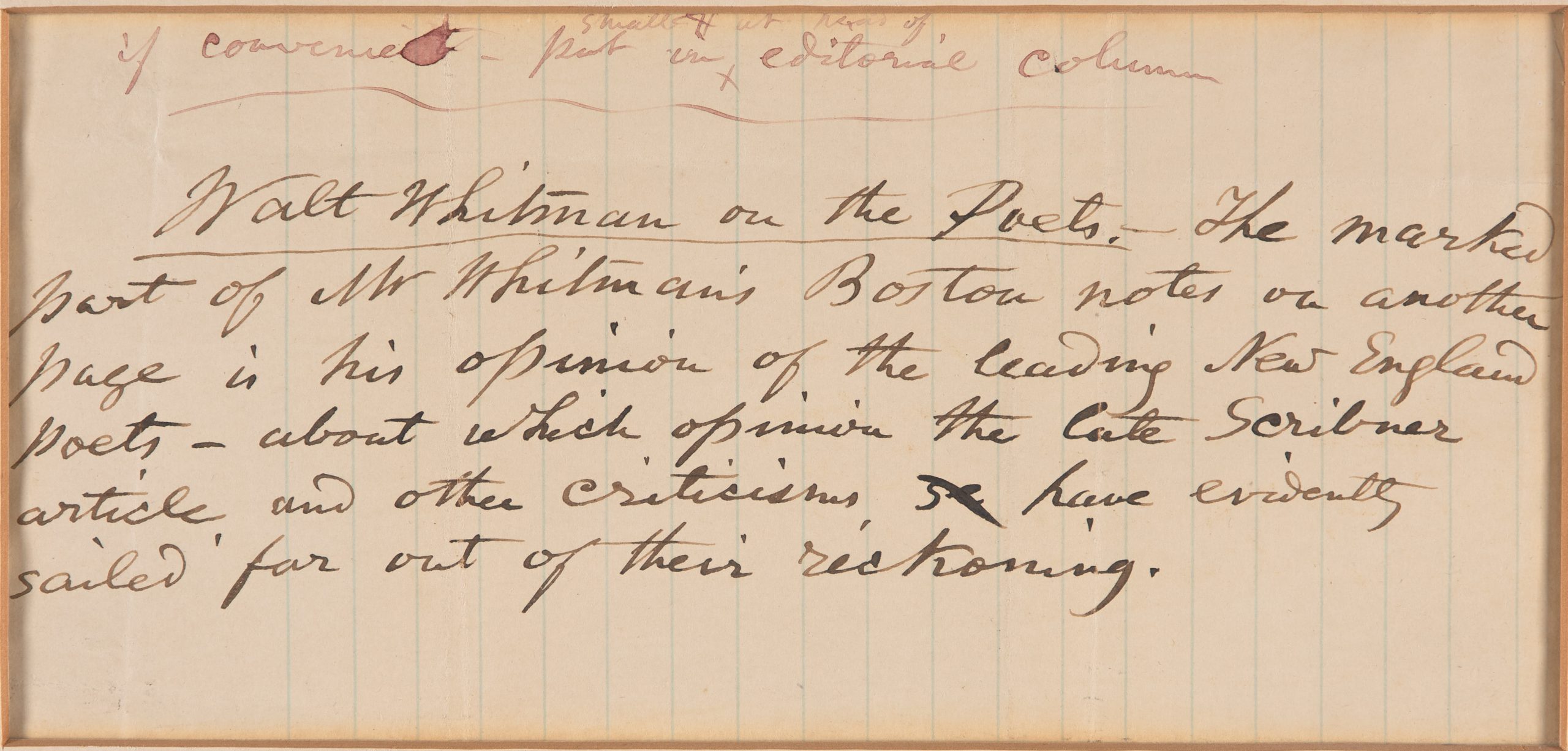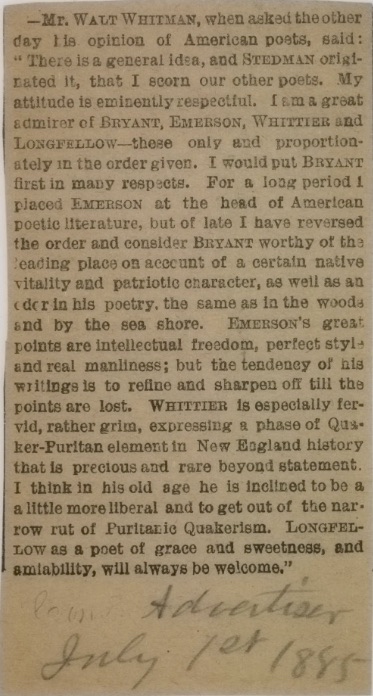Whitman on the poets
WHITMAN, WALT. Autograph manuscript signed “Walt Whitman on the Poets.”
No place, [1885]
Ruled paper. Some creasing. Framed with a portrait of Whitman. Whitman has written a note to a newspaper publisher at the top, “If convenient, put in small ¶ at rear of editorial column.”
In this fascinating manuscript Whitman provides a newspaper with an article defending himself against attacks that he did not respect the great American poets of the day. He writes:
“Walt Whitman on the Poets. The marked part of Mr. Whitman’s Boston notes on another page is his opinion of the leading New England poets – about which opinion the late Scribner article and other criticisms, have evidently sailed far out of their reckoning.”
Whitman had been accused of scorning the great New England poets, and here he rushes to defend himself. He notes that this view had started with E. C. Stedman’s well-known essay “Walt Whitman” (Scribner’s, November 1880). A clipping in Whitman’s papers at the Library of Congress prints the article Whitman refers to:
“MR. WALT WHITMAN, when asked the other day his opinion of American poets, said: ‘There is a general idea, and STEDMAN originated it, that I scorn our other poets. My attitude is eminently respectful. I am a great admirer of BRYANT, EMERSON, WHITTIER and LONGFELLOW- these only and proportionately in the order given. I would put BRYANT first in many respects. For a long period I placed EMERSON at the head of American poetic literature, but of late I have reversed the order and consider BRYANT worthy of the leading place on account of a certain native vitality and patriotic character, as well as an odor in his poetry, the same as in the woods and by the sea shore. EMERSON’S great points are intellectual freedom, perfect style and real manliness; but the tendency of his writings is to refine and sharpen off till the points are lost. WHITTIER is especially fervid, rather grim, expressing a phase of Quaker-Puritan element in New England history that is precious and rare beyond statement. I think in his old age he is inclined to be a a little more liberal and to get out of the narrow rut of Puritanic Quakerism. LONGFELLOW as a poet of grace and sweetness, and amiability, will always be welcome. [Whitman’s hand:] Advertiser July 1st 1885.”
A photograph of that clipping accompanies this manuscript (see image at left).
In this manuscript Whitman, nearing the end of his life, safeguards his own reputation and presents his mature view of the American poets he displaced.
$7,500




